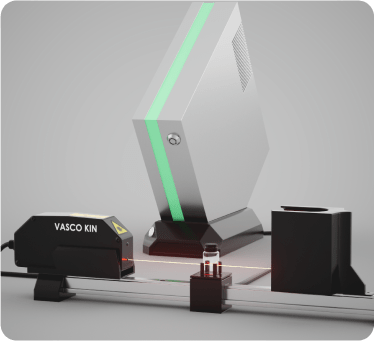Our instruments deliver reliable, repeatable, and accurate results, while our team of scientists and engineers ensures your success at every step by tailoring solutions to your specific application needs. We offer a wide range of instruments from benchtop solutions for everyday use in the lab to customized instruments for advanced applications.
Have a custom application?
Measure particle size and particle distributions for spherical and anisotropic nanoparticles.
Zeta Potential Analyzer
Analyze the zeta potential of your nanoparticles in just one click.
At Cordouan Technologies, we’re more than just an instrumentation company. We are a team of experts in light scattering nanoparticle characterization, integration, and customization. We create tailored solutions for your specific application needs, whether for lab research (R&D) or industrial applications (QC, Process monitoring). We offer a range of benchtop solutions for standard laboratory uses, as well as customized options for your applications.

Submit your samples for a complimentary analysis and see the precision of our instruments for yourself.

We are committed to your research’s future. Benefit from our lifetime customer support, ensuring your instruments continue to drive innovation in your projects.

Elevate your research with our instruments. Request your quote today and step into the future of nanoparticle analysis.
Dive deeper into the world of Cordouan Technologies. Find out more about our solutions, get in touch with our experts, and follow us on social media to keep up with the future of research.